- Home
- /
- Stories
Stories
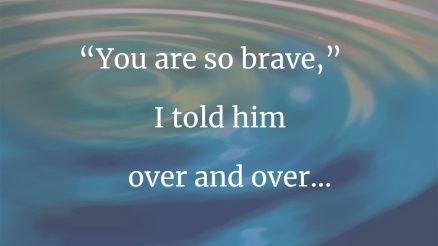
What Do You Want Your Life to Look Like?
In the first months of medical school, we’re taught that patient autonomy should be one of a physician’s guiding tenets. The doctor provides diagnoses, prognoses and treatment plans, but ultimately it’s up to patients to make decisions about their own care.
As a family doctor, I often tell patients: “Only you can know what the right decision is for you. I’m here to provide information and recommendations and then to support your decision.”
But over the past year, as my father’s memory deteriorated and his life drew to a close, I learned about the ways in which our medical system limits patient autonomy.
During his last months, my father said repeatedly, “My brain is in chaos.”
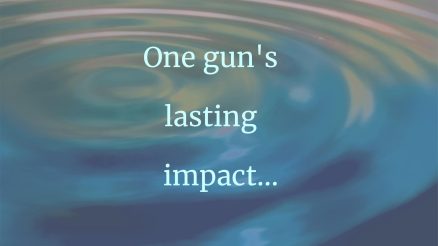
Caught in the Crossfire
I’ll call him Rocky. In a drive-by incident, his father was killed, and Rocky, age one, was shot multiple times.
His initial resuscitation was heroic—he received medicines to support his blood pressure, underwent emergency surgeries and was still attached to machines to support his breathing—but by the time I met him, the drama of his shooting had receded: He and his medical team had settled into a stable routine.
Though I suspect that the team had expressed their grief earlier on, I found this sense of calm jarring and unnatural.
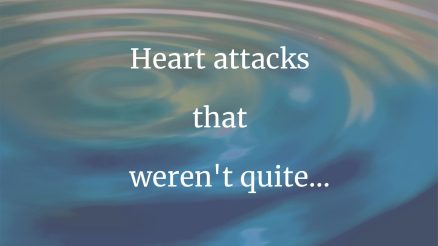
How Poetry Broke My Heart
On June 2, 2010, I was giving a poetry reading at the faculty club at Columbia University Medical Center in New York as part of their “Literature & Medicine” series. I still have the list of poems I read that day, poems that spoke of my work as a nurse practitioner. One poem described my examination of an abused woman; another recounted the experience of a young teen, raped by her sister’s boyfriend. Other poems concerned the mysteries surrounding death as well as the joys of healing.
Somewhere halfway through the reading, I developed what is aptly called crushing chest pain.
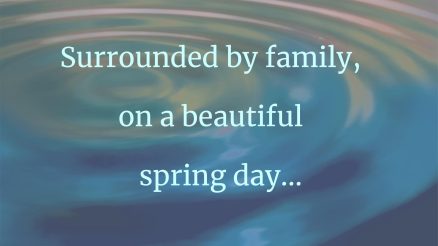
Going in Peace
All too often in my forty years of practicing medicine, I’ve seen patients die hard, lonely deaths—lying on a stretcher under the emergency department’s glaring lights, or all alone in an ICU bed.
In extreme situations, the patient is covered in medical equipment: a breathing tube in the mouth, defibrillator pads on the chest, monitor leads on the torso, IV lines dangling from the neck and arms. When family members finally enter the room, it’s heart-wrenching to see them weep over their loved one, to whom they never got to say goodbye.
But it doesn’t always happen this way.
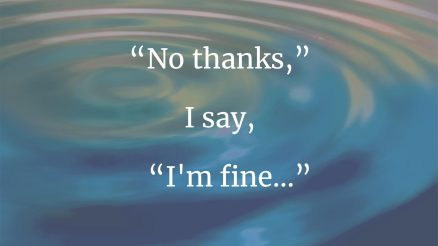
Smells Like Love
The dank, loamy smell fills my nostrils. I turn my head, but cannot escape the odor. It emanates from me, this nauseating scent of sickness and neglect.
It is five days since the surgery, five days since my right breast and multiple lymph nodes were removed. I cannot bathe or shower.

The Last Gandy Dancer
After I retired, my wife and I moved, giving me a reason to go through my old files. I found the notes from this story scribbled on some scrap paper that used to be everywhere in our offices. “Keep good notes,” someone once advised me. These are good notes and a good story.
Thirty-five years ago I was on the faculty at the University of North Carolina in Chapel Hill and spent a lot of time traveling around the state.
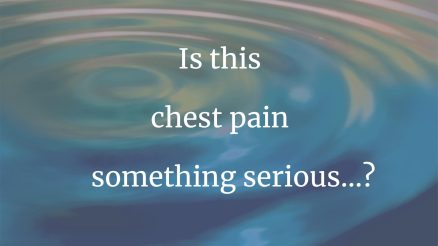
One Big Stress Test
On Friday, February 29, my wife Mary and I had back-to-back doctor’s appointments at Kaiser Permanente in Moreno Valley—she to talk about a puzzling lethargy that had been dogging her and I to talk about an odd chest pain that I thought a remnant of the flu I’d had in late January.
Dr. McDougal listened to my heart and then listened to my description of the pain.

An American Journey
I vividly remember sitting in the living room of my grandmother’s house in Piedra Blanca, Dominican Republic. The room had been cleared of furniture. Before me, a flower-filled casket held the body of a young girl—my sister Nelsida, age seven. She had died from an anesthesia overdose prior to surgery.
I was five. I will never forget the sight of the cotton balls inside her nose and ears, the ice under the casket and the scent of the flowers. And that beautiful pink and white dress she wore, with a tiara that was her favorite. In the next room, my mother and sisters were screaming in grief.

The Joys of Parkinson’s Disease
Two and a half years ago, a movement-disorder specialist confirmed my family physician’s judgment that my problems with balance and walking could be early signs of Parkinson’s disease. That’s exactly what they were. I joined one million other Americans living with this illness.
My symptoms, although mild and so far manageable, are nonetheless evident.
